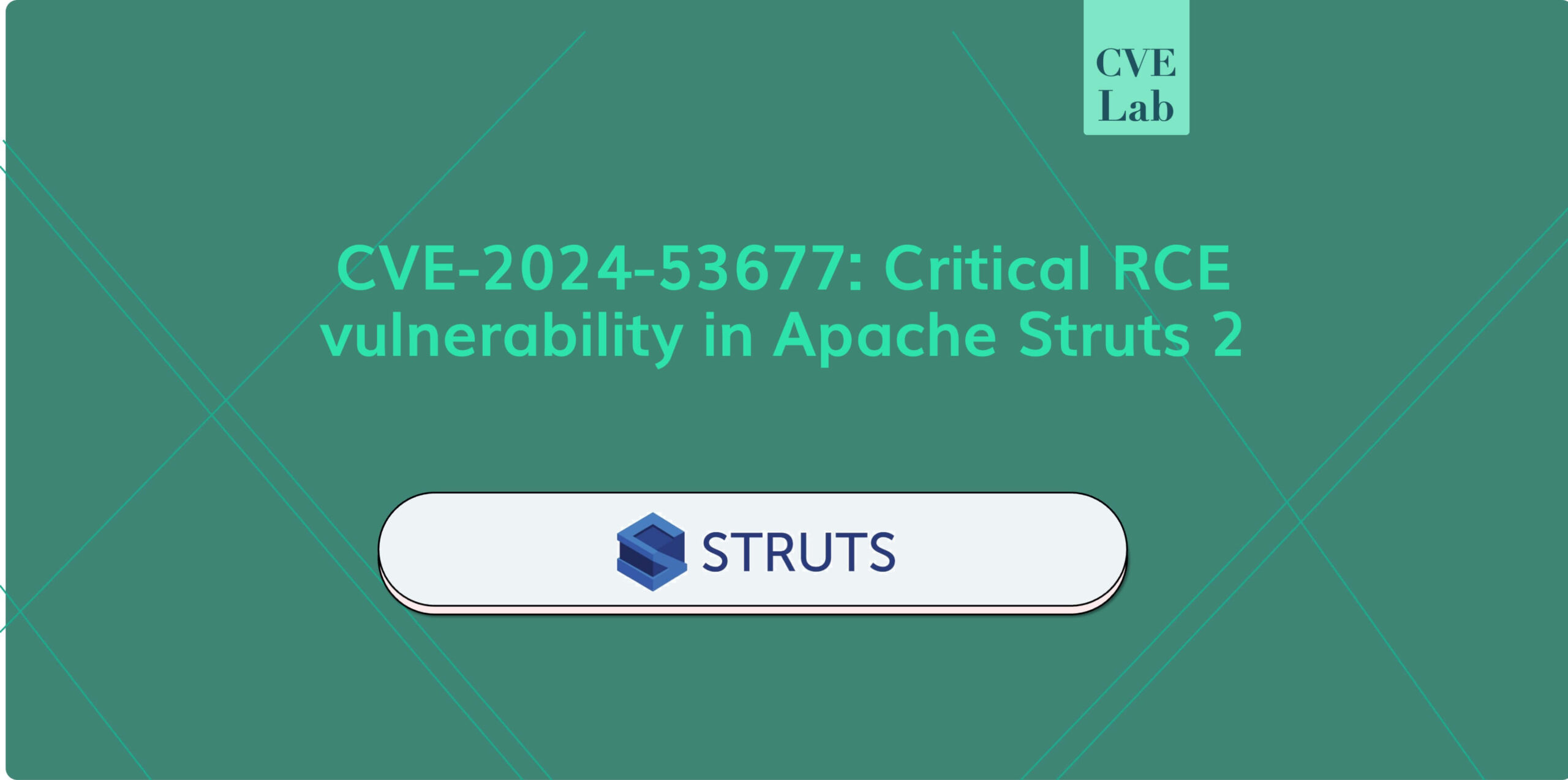-
Platform
OVERVIEW
Capabilities
-
Solutions
USE CASES
-
Cyber Risk Hub
LIBRARY
-
Company
GET TO KNOW US
-
Pricing
Apache Struts 2, a widely used Java framework for building web applications, has been hit with a critical remote code execution (RCE) vulnerability, tracked as CVE-2024-53677. With a severity score reaching 9.8 on the CVSSv3 scale, this flaw allows attackers to execute arbitrary code without requiring privileges, potentially leading to severe breaches. This blog post dives into what CVE-2024-53677 is, whether it affects you, its exploitation status, and how to address it effectively.

|
Affected products: |
Apache Struts from 2.0.0 before 6.4.0
|
|
Product category: |
Web Application Security |
|
Severity: |
Critical (CVSSv3 Score: 9.8, CVSSv4 Score: 9.5) |
|
Type: |
Path traversal |
|
Impact: |
|
|
PoC: |
|
|
Exploit in the wild |
No |
|
CISA Catalog |
|
|
Remediation action |
|
|
MITRE advisory |
Organizations using Java-based applications built with Apache Struts 2 are at risk if their versions fall within the affected ranges and rely on the vulnerable File Upload Interceptor component. Commonly affected sectors include government, financial services, and telecommunications, where Struts 2 continues to see substantial usage despite the availability of alternative frameworks.
To determine your risk:
While no confirmed exploitation of CVE-2024-53677 has been publicly reported, history suggests caution. Apache Struts vulnerabilities have been prime targets for attackers, with notable incidents like the Equifax breach in 2017, attributed to a similar flaw.
The U.S. Cybersecurity and Infrastructure Security Agency (CISA) highlights multiple Struts RCE vulnerabilities in its Known Exploited Vulnerabilities (KEV) catalog, indicating their attractiveness to threat actors.
Given Struts 2’s download volume – estimated at 300,000 monthly requests, with a significant portion still containing critical bugs – organizations should treat this vulnerability as a high-priority issue.
Organizations applying to the above conditions should Upgrade to a Secure Version: The most effective solution is to upgrade to Apache Struts 2.6.4.0 or later. This update not only addresses the vulnerability but also eliminates the deprecated File Upload Interceptor component.
Additionally, admins are advised to migrate to Action File Upload Interceptor immediately. If your application relies on the deprecated File Upload Interceptor, migrating to the Action File Upload Interceptor is essential. This process involves rewriting your actions to ensure compatibility with the newer mechanism, which offers enhanced security and integration features.
For further mitigations it is also strongly recommended to:
CVE-2024-53677 underscores the ongoing risks posed by outdated or improperly configured software components. With its potential for severe exploitation, organizations must act quickly to assess their exposure and apply the necessary updates.
By upgrading to a secure version and adopting modern file upload mechanisms, businesses can significantly reduce their attack surface and safeguard their systems against this critical flaw.
Each new vulnerability is a reminder of where we stand, and what we need to do better. Check out the following resources to help you maintain cyber hygiene and stay ahead of the threat actors: